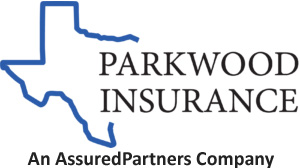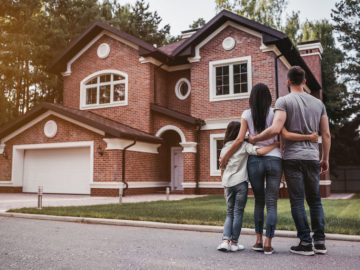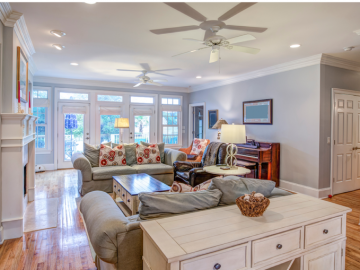The price of your annual homeowners insurance can vary by hundreds of dollars depending on many factors. Here are some things you can do to lower the cost:
1. Find an independent insurance agency
Independent insurance agencies are your best bet to save money because they directly represent many top insurance companies rather than just one. Not only can independent insurance agencies shop the marketplace for the best rates now, but they can do this each time you renew as well. This allows you to maintain the best possible rates ongoing.
2. Raise your deductible
Deductibles are the amount of money you have to pay toward a loss before your insurance company starts to pay a claim, according to the terms of your policy. The higher your deductible, the more money you can save on your premiums. Consider raising your deductible to a higher amount but don’t raise it higher than you can afford in case you have to file a claim.
3. Try to keep your claims record clean
Insurance companies have an old saying: Insurance is for big losses, not small ones. This is actually good advice because the more claims you have, the more your home insurance will cost. So if the damage is small, try to pay for it out of pocket. Additionally, having claims on your record makes it harder to find better prices when your independent insurance agent re quotes you each year.
4. Don’t confuse what you paid for your house with the cost to rebuild it
The land under your house isn’t at risk from theft, windstorm, fire and the other perils covered in your homeowners policy. So don’t include its value in deciding how much homeowners insurance to buy. If you do, you will pay a higher premium than you should.
5. Buy your home and auto policies from the same insurer
Some companies that sell homeowners, auto and liability coverage will take 5 to 15 percent off your premium if you buy two or more policies from them. But make certain this combined price is lower than buying the different coverages from different companies.
6. Improve your home security
You can usually get discounts of at least 5 percent for a smoke detector, burglar alarm or dead-bolt locks. Some companies offer to cut your premium by as much as 15 or 20 percent if you install a sophisticated sprinkler system and a fire and burglar alarm that rings at the police, fire or other monitoring stations.
7. Maintain a good credit record
Establishing a solid credit history can cut your insurance costs. Insurers are increasingly using credit information to price homeowners insurance policies. In most states, your insurer must advise you of any adverse action, such as a higher rate, at which time you should verify the accuracy of the information on which the insurer relied. To protect your credit standing, pay your bills on time, don’t obtain more credit than you need and keep your credit balances as low as possible. Check your credit record on a regular basis and have any errors corrected promptly so that your record remains accurate.
8. Review the limits in your policy and the value of your possessions at least once a year
You want your policy to cover any major purchases or additions to your home. But you don’t want to spend money for coverage you don’t need.
9. The newer your home, the lower the cost of insurance
Insurance companies give “new home” discounts. This will usually last for 10 to 15 years from the date your home was built. If you are thinking of buying a house, keep this in mind because the savings could be as much as 40% compared to a house that is over 30 years old.
10. Distance from closest fire department
Every house has a “fire protection class” based on how far you are from the closest fire department. The farther out you are, the more your home insurance will cost. A general rule of thumb is to be within 5 miles of the city limits or you will be considered “unprotected”. Unprotected houses usually cost significantly more to insure.



